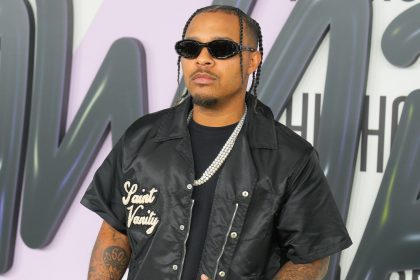Atlanta-born rap artist Young Thug, legally known as Jeffery Williams, has launched a new legal initiative to modify his stringent probation terms following the YSL RICO case resolution. His primary goal centers on reconnecting with his Atlanta-based family during holiday celebrations, challenging the decade-long ban from his hometown metro area. The case has drawn widespread attention from legal experts and music industry professionals, highlighting the challenges faced by artists navigating the criminal justice system while attempting to maintain their careers.
Breaking down the probation puzzle
The current terms of Williams’ 15-year probation include a significant restriction barring him from the metro Atlanta region for the initial ten years. Through his legal representation, Williams has filed a motion highlighting the personal property he maintains in Atlanta and emphasizing his deep-rooted family connections to the area. The probation terms present unique challenges that extend beyond typical restrictions, effectively separating him from his cultural and professional roots in the city that shaped his artistic journey.
The geographical restrictions pose particular difficulties during major family events and holidays, potentially missing crucial moments in his children’s lives and important family gatherings. These limitations also affect his ability to maintain relationships with extended family members who have been integral to his support system throughout his career.
Privacy in the spotlight
The complexity of Williams‘ situation extends beyond geographical restrictions. Florida’s transparency laws present an additional challenge, as they require public disclosure of his residential address. This requirement has raised serious security concerns for the high-profile artist, prompting his legal team to seek protective measures for his personal information. The intersection of public safety requirements and personal privacy rights creates a unique challenge for celebrities under probation supervision.
The privacy concerns extend to his daily activities, as the public nature of his address could potentially attract unwanted attention and compromise his safety. His legal team argues that these circumstances create an unnecessary risk for someone actively working to comply with probation requirements and rebuild their life.
Reconsidering the plea
In the aftermath of his co-defendants’ acquittals in the YSL case, Williams has expressed second thoughts about his plea agreement. His attorney, Keith Adams, acknowledges a mix of emotions from his client – joy for his cleared associates tinged with personal regret over not pursuing a more aggressive defense strategy. This situation highlights the complex decisions defendants face when weighing plea deals against potential trial outcomes.
The recent developments in related cases have sparked discussions about the nature of RICO charges in the music industry and their impact on artistic expression. Legal experts point to the increasing scrutiny of rap lyrics and music videos in criminal proceedings, raising concerns about the intersection of creative expression and criminal evidence.
Career implications
The current probation terms pose significant challenges to Williams’ music career trajectory. These restrictions limit his ability to engage with his fan base, perform at venues, and maintain the strong industry connections that originally flourished in Atlanta’s vibrant music scene. The geographical constraints particularly impact his capacity to collaborate with other artists and maintain his prominent position in the hip-hop community.
The music industry’s collaborative nature makes these restrictions especially problematic. Atlanta’s role as a hip-hop cultural center means that many potential collaborators, producers, and industry professionals are based in the restricted area. This limitation could significantly impact Williams’ ability to maintain his artistic relevance and continue developing his craft.
Additionally, the restrictions affect his business ventures and investments in the Atlanta area, where he has established various entrepreneurial projects over the years. The inability to directly oversee these interests could lead to financial and operational challenges that extend beyond his music career.
Impact on the music community
Williams’ case has broader implications for the hip-hop community and music industry as a whole. It raises questions about how legal restrictions can affect artistic expression and career sustainability in an industry where geographic connections and community ties play crucial roles.
The situation has prompted discussions within the music industry about the need for better support systems for artists facing legal challenges. Industry professionals have begun examining how to maintain artist development and career momentum while navigating complex legal restrictions.
Looking ahead
As Williams awaits a hearing date for his probation modification request, the outcome could significantly shape both his personal life and professional future. The resolution of this legal challenge may set important precedents for artists facing similar probation restrictions while trying to balance their careers with legal obligations.
The extensive limitations placed on Williams highlight broader questions about the balance between public safety measures and allowing reformed individuals to maintain crucial family and community connections. His situation exemplifies the complex intersection of criminal justice, artistic expression, and personal rehabilitation.
The case also raises important questions about the effectiveness of geographic restrictions in probation terms, particularly for public figures whose careers often require mobility and community engagement. Legal experts suggest that this case could influence future discussions about probation terms for high-profile individuals in creative industries.















